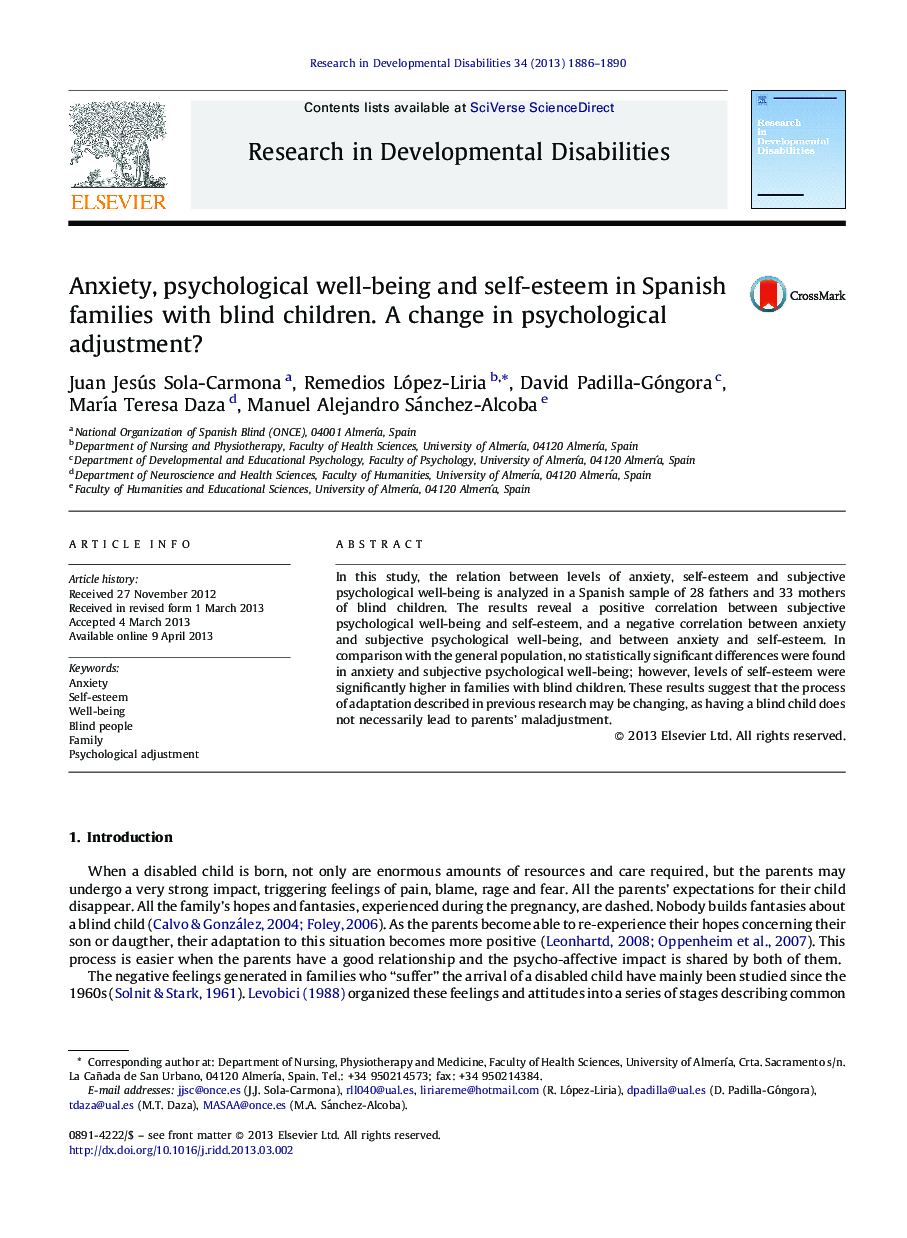| Article ID | Journal | Published Year | Pages | File Type |
|---|---|---|---|---|
| 371755 | Research in Developmental Disabilities | 2013 | 5 Pages |
•Having a blind child does not necessarily lead to parents’ maladjustment.•The results reveal a positive correlation between subjective psychological well-being and self-esteem.•There is a negative correlation between anxiety and subjective psychological well-being, and between anxiety and self-esteem.•The levels of self-esteem were significantly higher in families with blind children than the general population.•These results suggest that the process of adaptation described in previous research may be changing.
In this study, the relation between levels of anxiety, self-esteem and subjective psychological well-being is analyzed in a Spanish sample of 28 fathers and 33 mothers of blind children. The results reveal a positive correlation between subjective psychological well-being and self-esteem, and a negative correlation between anxiety and subjective psychological well-being, and between anxiety and self-esteem. In comparison with the general population, no statistically significant differences were found in anxiety and subjective psychological well-being; however, levels of self-esteem were significantly higher in families with blind children. These results suggest that the process of adaptation described in previous research may be changing, as having a blind child does not necessarily lead to parents’ maladjustment.
